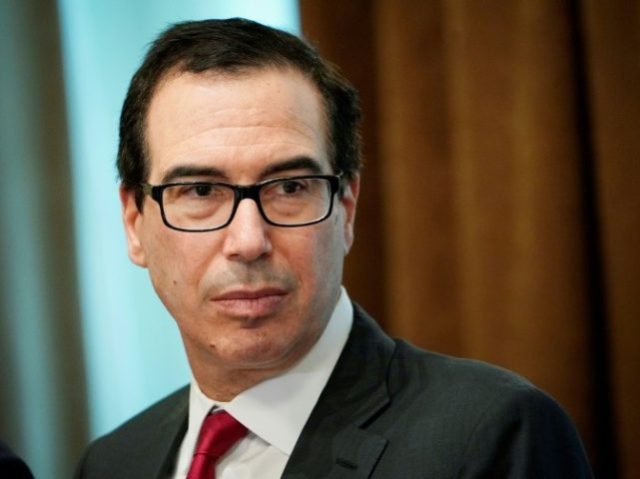Treasury Secretary Steven Mnuchin said he is considering using the administration’s regulatory power to adjust capital-gains taxes for inflation, according to a report in the New York Times.
The Treasury Department could unilaterally change the definition of “cost” when it comes to capital gain, allowing taxpayers to adjust the value of an asset for inflation when it is sold, according to advocates of the change. It would mean that small business owners and homeowners, for example, would no longer be taxed for illusory gains created simply by the erosion of the buying power of the dollar.
The New York Times described this would be “a $100 billion tax cut mainly to the wealthy.”
The Times reports that Mnuchin said in an interview during the Group of 20 summit in Argentina this month that his department was studying the matter.
“If it can’t get done through a legislation process, we will look at what tools at Treasury we have to do it on our own and we’ll consider that,” Mnuchin said, according to the Times.
Mnuchin had said a month ago that he would prefer lawmakers adopt indexing rather than attempting to implement it through the executive branch unilaterally.
“Consider that with obviously other parts of Tax 2.0,” Mnuchin told the Wall Street Journal. “If we’re not able to complete Tax 2.0, then we’ll go back to the drawing board and decide whether we want to consider this on a nonlegislative basis.”
It is not clear if Mnuchin’s latest statements represent a change from the administration’s earlier stance.
Conservative policy analysts have been urging the administration to adopt indexing for inflation as part of the next step in tax reform, what the Trump administration folks have taken to calling Tax 2.0.
Americans for Tax Reform has been pushing for indexing for over a year.
While the best way to achieve this goal is working with Congress to pass tax reform legislation, there are also other ways to achieve this. One change the Trump administration can make to the code immediately is directing Treasury to account for inflation when calculating capital gains taxes as outlined in a 1992 legal memo commissioned by the National Chamber Foundation and prepared by the law firm Shaw, Pittmann, Potts & Trowbridge.
One problem with indexing through administration action is that it could easily be reversed by a subsequent administration, just as many of the Obama administration’s executive orders have been overturned by the Trump White House.

COMMENTS
Please let us know if you're having issues with commenting.